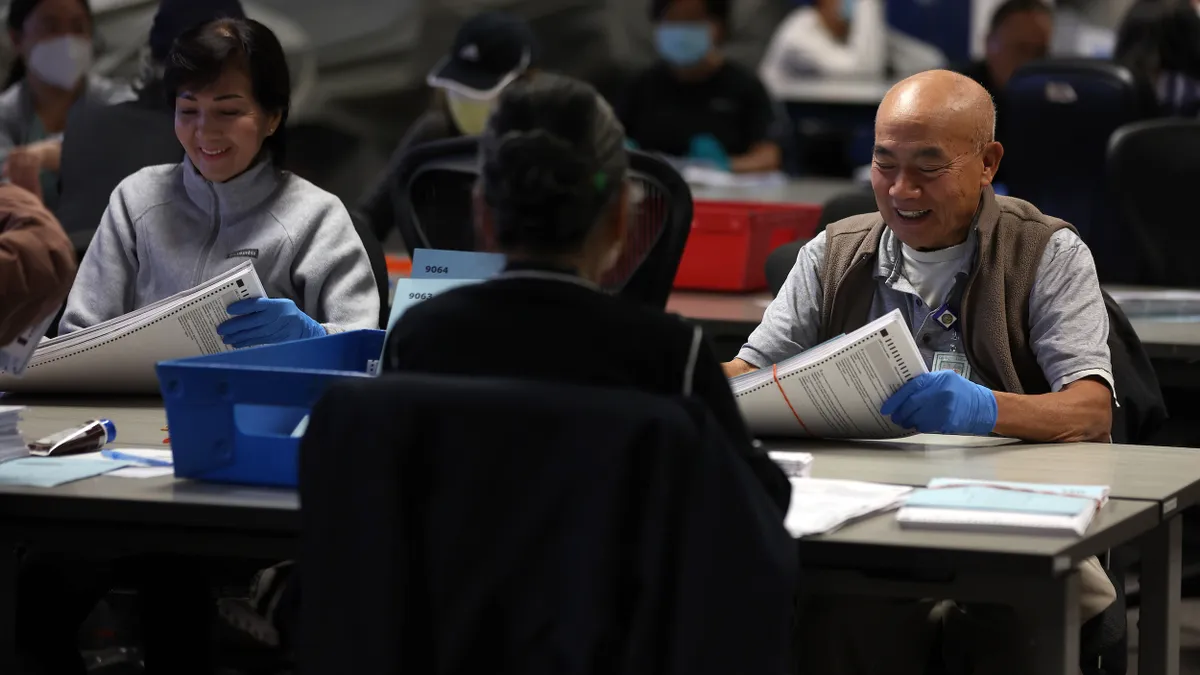UPDATE: Nov. 8, 2024: Of the 26 local, county and state transportation-related ballot measures tracked by Smart Cities Dive, 18 passed. Transit campaigns nationwide have gained momentum in recent years due to communities' increasing focus on accessibility, green infrastructure and reconnecting communities, said Jessica Grennan, executive director of the American Public Transportation Association’s Center for Transportation Excellence, during a Nov. 7 webinar. “Regardless of the political makeup, people are supporting transit,” she added.
Transportation policy has barely gotten a mention by the front-runners in this year’s presidential race, but that doesn’t mean it is being overlooked at the local level. More than $50 billion in transit-related measures will be on the Nov. 5 ballots across the U.S., according to Jessica Grennan, executive director of the American Public Transportation Association’s Center for Transportation Excellence.
Voters will decide on measures ranging from a Gwinnett County, Georgia, referendum that could raise $17 billion from a 30-year, one-cent sales tax to expand the county’s bus and microtransit system to a tax on property owners in South Lake Tahoe, California, who don’t live there full-time, with the revenues going to transit, roads and housing.
Sales taxes appear to be localities’ preferred funding mechanism for transportation projects, but property and other taxes are also on the ballot this November. San Francisco wants to impose an additional tax ranging from 1% to 4.5% on ride-hailing companies like Uber, Lyft, Waymo and Cruise.
Smart Cities Dive identified at least 21 city, county and state measures on Nov. 5 ballots:












